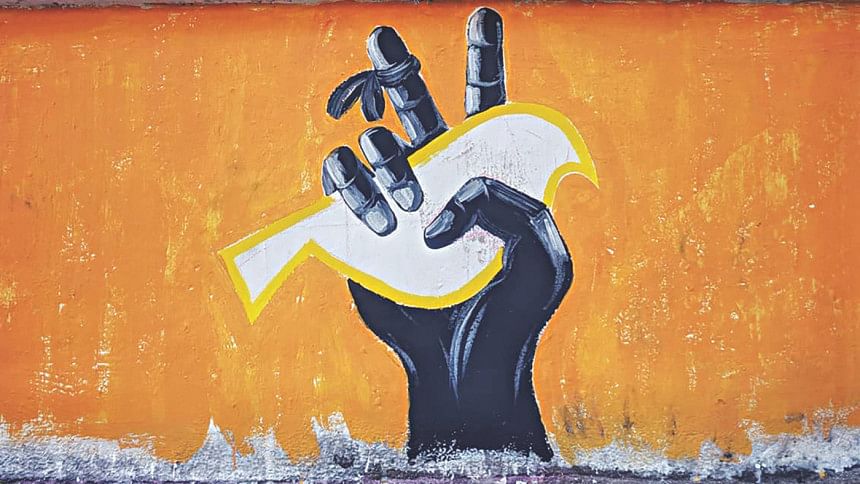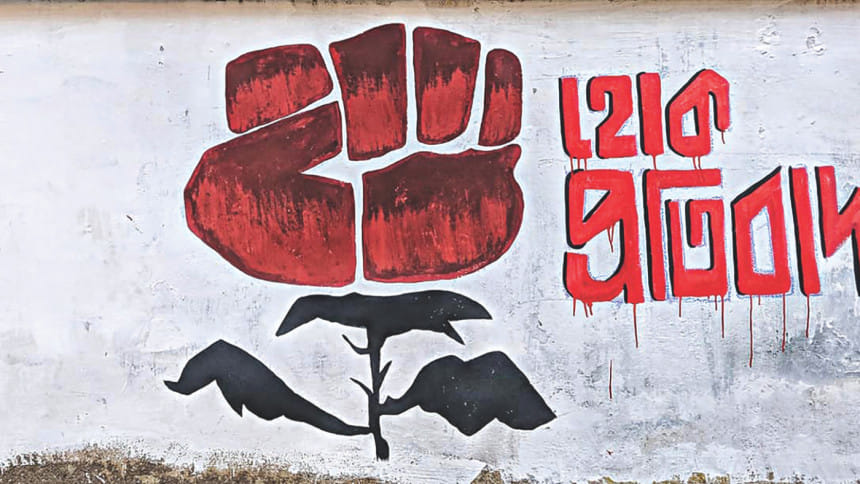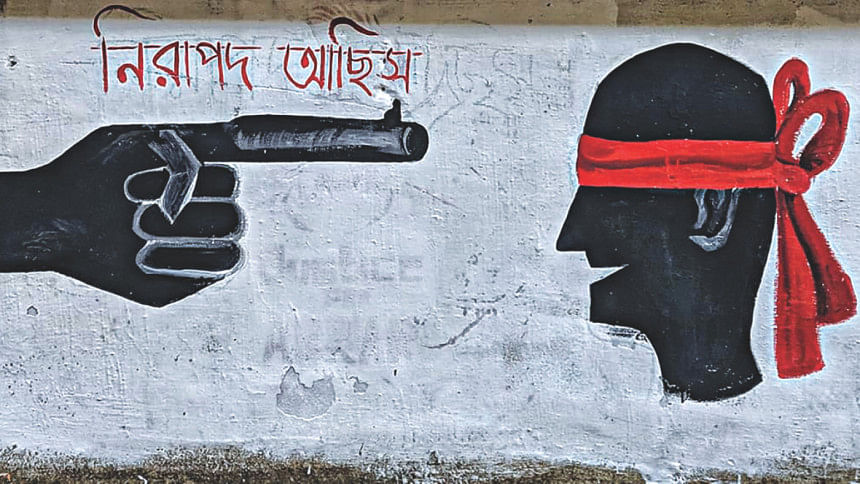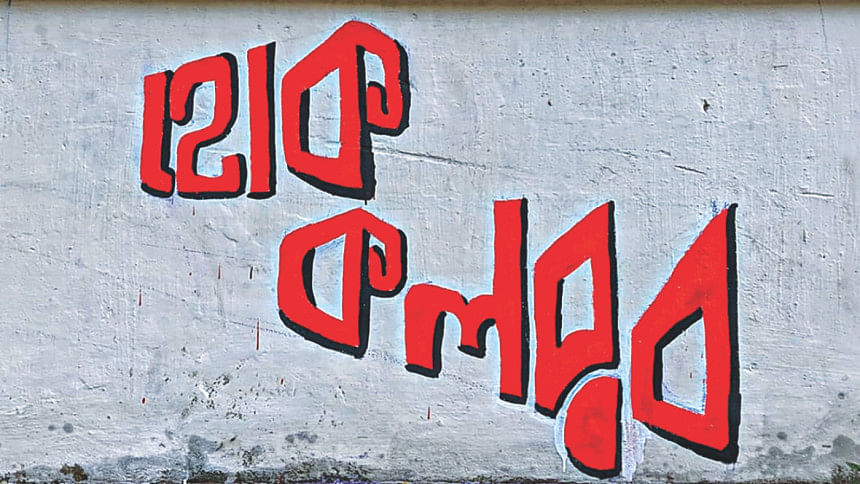Cutting the head to cure a headache?

Dhaka University Central Students' Union Vice President, Nurul Haque Nur
Ban student party organisations, but revive student associations and parliaments
Speaking as a representative of the students, I want to reiterate that the BUET students are demanding that only party politics be banned on campus—not student politics in general. To be more specific, they are demanding the ban of Bangladesh Chhatra League (BCL).
The students should have demanded a student association based on clean politics and meritorious leaders. When we say student politics, we actually mean student activism—we are not talking about the student political organisations. These in-campus party organisations work for the agenda of their parent organisations, not for the students. They work to make sure that students cannot protest against the state and the political parties, and so they oppress.
Since student party politics has had a glorious history, one might wonder, how are we here? Even before Abrar Fahad, BUET has previously seen how Sabikun Nahar Sony was killed on campus during in-fighting between two political factions. Over the last two decades, the political parties have always recruited their armed infantry from the campuses, so as to dominate the students.
There is no alternative to having student parliaments on campus. The parliaments will give us clean student political leaders. I myself never had political backing, and I came to the spotlight when working with civic issues that affected the interests of the general student body. The general students won seats in spite of the fact that the election was unfair.
The ruling party student organisations are not letting the student unions or student parliaments be revived. Even during the autocratic regime under Hussain M Ershad, the students' unions existed. But when democracy took over, both the ruling parties stopped the unions, refused to allow union elections to take place. If the students strongly demand that students' unions be revived, then the ruling party will be forced to give in—like they did at DUCSU.

Mujahid Islam Selim, president of Communist Party of Bangladesh
Student party organisations need to be given independence, not banned
One issue needs to cleared up—no student party organisation except that of the ruling party has ever existed inside the BUET campus. Our student wing, Chhatra Union, for example is prohibited. Currently, only BCL exists in BUET. They do not do student politics—they are a fascist organisation. In fact, they exist the way they do precisely because there is no other student political organisation to counter them. The torture cells and ragging are possible because there is no proper student politics. Similarly, the apolitical campuses of private universities have bred the kinds of the students who could perpetrate an incident such as the Holey Artisan Bakery attack. These situations arose because there is no proper student politics. Depoliticalisation will create a political vacuum that can be filled with anything.
It is not a question of student party organisations, or even BCL. This is a question of power. Power oppresses. All of this happened because the administration, teachers and students came together to form a syndicate to protect the interests of the state, and not the students. If students are given independence to do any type of student politics they want, then these forces will be countered. We should take steps against the criminal organisations—and student political organisations are a natural ally. There should be elected student representatives to help the administration.

Mahfuza Khanam, president of Asiatic Society of Bangladesh, former DUCSU VP of 1967-1968
Hold the administration accountable, don't ban student politics
Student politics has a particular framework, and it has to be limited within it. But when they came out of that framework and started acting as the muscle power of ruling parties, it became problematic. In colleges and universities, the administrative heads have kept these boys as their muscle power or their pets, just to be able to hold on their chairs. Where were the provosts when the dormitories were bursting into violence?
When we were student politicians, our teachers guided us, showed us the way. I myself was a professor of physics. Teachers nowadays need to reflect on whether they are playing an ethical roles. Many of them are culpable of transgressions that does not go with the ethics of the profession. Teachers are now branding themselves in different political colours just to retain their positions in the universities.
What has been happening here is not student politics. This is crime. This is not the same student politics we had done to liberate the country. This is an insult to the student politics we had done. There is no question of banning student politics—instead we need to bring back the old ways of doing it. We need to change the way the administration functions. Our university administrations have been chasing money without conscience. Does the provost wonder how his students are doing, when he goes to sleep at night? Does the house tutor go to bed knowing that all the students are safe? Do they guarantee those before going to bed? What is the legacy of the university they are leaving behind—this, they will have to be answerable for.

Jamilur Reza Chowdhury, President of BUET Alumni, Vice-Chancellor of University of Asia Pacific
Ban student political organisations
As President of BUET alumni, we placed seven demands, one of which is delinking of student organisations, who are officially or unofficially linked with national political parties.
The students can do politics, but not on campus. Universities are guided by their acts. Our act states that teachers and students cannot become formal members of political parties. If this is a violation of human rights, then they can go to the court, and let the court decide. In 2002, when Sabikun Nahar Sony died during a conflict between Bangladesh Chhatra Dal factions, a notice was issued forbidding the students from organising rallies etc without getting approval from the administration, or risk repercussions. They can only operate clubs and societies if they get approval from the authorities.
As the vice-chancellor of a private university, we have meetings with guardians of students once a year. The guardians are unanimous in their decision that the campus should not have politics or political parties. Some private universities also make their students sign an undertaking stating that they will refrain from student politics. If they do not agree then they should go for universities where political activities are allowed.
BUET administration has failed to identify that student politics is a problem. They have not taken any preventive or corrective action regarding the current situation. Our former administrators say that it is unimaginable that such torture cells can exist within BUET! During their regime, the hall officials would monitor the situation rigorously. But over the years, the provosts stopped visiting the halls regularly—they are negligent of the students who are pampered by political parties.
Lucky Akhter, former president of Chhatra Union, famed "Agnikanya" of the 2013 Shahbagh protests
All student political organisations cannot take the fall
A ban on student politics in BUET is ridiculous, because its constitution doesn't allow student politics. In the last 10 years, no other organisation except BCL has been able to get a foothold there, and radical extremist wings managed to find space undercover in the absence of formal political activities.
When I was president of the Bangladesh Students' Union, we wanted to do a training and a cultural programme in BUET and they did not let us, because they said that no politics is allowed inside. Then how did BCL manage to do politics? For decades terrorist actions by a few organisations have been dubbed as student politics. To me, an independent administration should be responsible for restricting the oppressive conduct of any organisation. But as the autonomy of the universities have been fading away since long, the university administrations are kneeling more and more to the power of party student wings. I think restoring democratic practices can improve the situation and you cannot do that without political practices.
Auroni Semonti Khan, independent candidate who contested DUCSU 2019 elections
The student politics of Bangladesh is no longer about student rights. It is about protecting the interests of national level political parties, and gaining unethical benefits in exchange. BUET has not banned student politics. They simply banned the activities of cadre-based political organisations, which is a very practical solution to the current context, I believe.
In recent times, the biggest student protests have been the quota reform movement and road safety movements of last year. No established political organisation played any significant role in these. When students want to take a stance against injustice, they neither need any political leader to make the call to organise, nor do they need any organisation's slogan to rally after. These political organisations, which are completely unrelated to student issues, hamper the academic environment by having routine showdowns, and by inviting external cadres into the campus.
Zonayed Saki, Chief Coordinator of Ganosamhati Andolon
Ban on student politics excuses the administration
A ban on student politics is not going to help. Whatever is happening on campus is a reflection of national level politics—will you stop national politics then? The current government is to blame for the state that BCL is in right now.
Bangabandhu Sheikh Mujibur Rahman Science & Technology University did not have proper student politics, but BCL still held hold. We have all recently been made aware to what went on there. If we ban student politics completely, then the situation becomes even more undemocratic, because nobody will remain to oppose the ruling party. BCL is doing crime, then why are we penalising the others?
Instead of banning student politics, other steps can be taken. The government and the ruling party need to stop intervening into the universities. If a person needs to pander to ruling party student organisations just to become a house tutor, or if a professor needs to grovel behind politically influential people just to get a job, then how will you ensure student rights? In addition, the political organisations of the students cannot have any special privileges, like being able to control the allocation of dormitory seats. We always had a trend of crime perpetrated by student party organisations in campuses. But the administration and the law enforcers need to remain vigilant, and take appropriate steps.
I believe that the BUET vice-chancellor took this step just to escape his own responsibility of tackling the bigger problem of reforming the university.

 For all latest news, follow The Daily Star's Google News channel.
For all latest news, follow The Daily Star's Google News channel. 



Comments